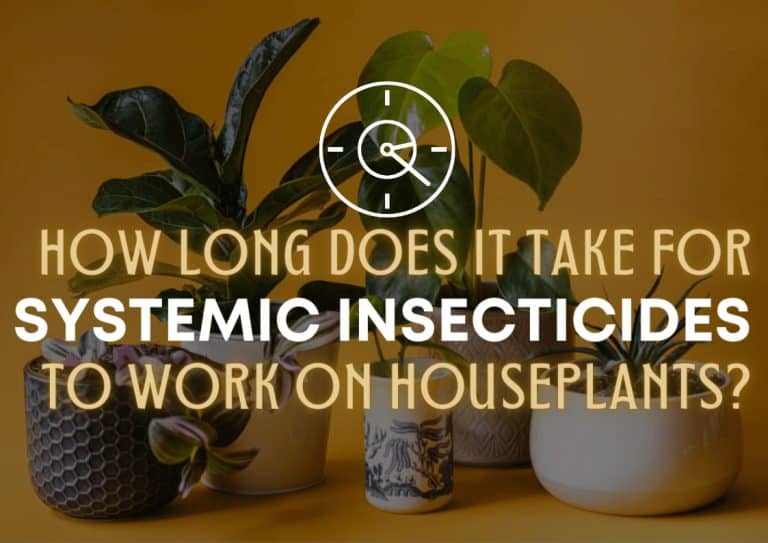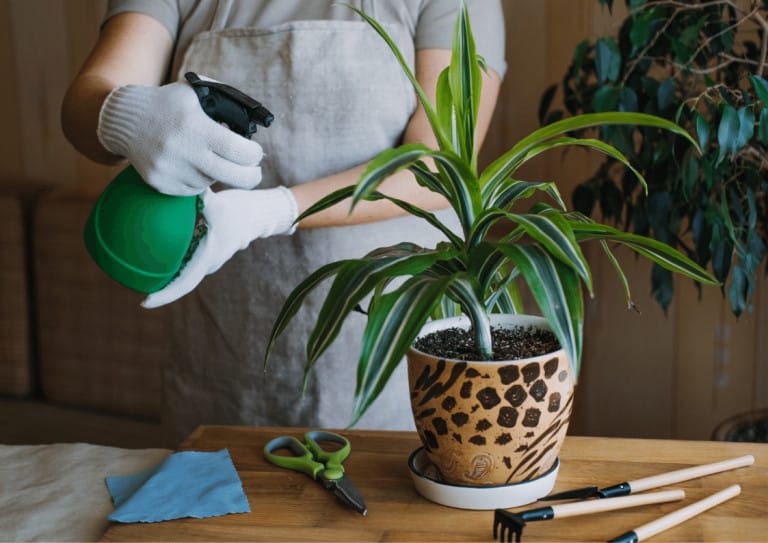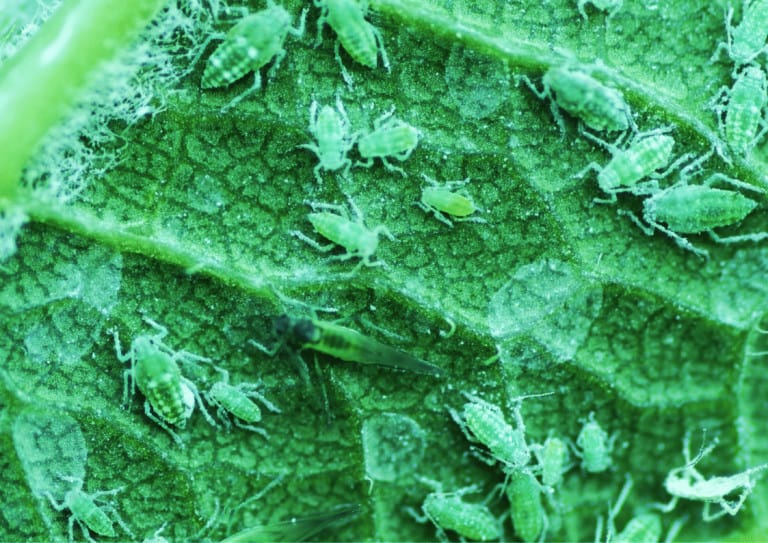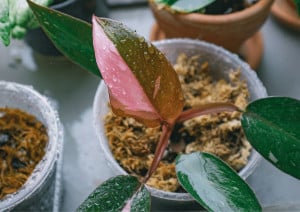How Long Does It Take For Systemic Insecticides To Work On Houseplants?
-
Chris Dosser
- December 23, 2022
If you buy something using the retail links in our articles, sometimes we earn a small affiliate commission. This does not impact the products we recommend.
The speed at which systemic insecticides begin to work upon houseplant pests is, as you might expect, influenced by multiple factors including the plant species, the mechanism of delivery, how water soluble the insecticide is, and the mode of action of the active ingredient.
To provide some example timelines, in the case of a large Monstera plant treated with systemic insecticide via soil drench, it can take up to 7 days for the chemicals to be picked up by the roots and transported via the vascular system to all plant tissue. However, applying the same insecticide to the same plant by foliar spray, which acts doubly as a contact killer, can begin providing protection almost immediately for a duration as long as 90 days.
As the pests targeted by systemic insecticides are those that consume plant tissue (thrips, aphids etc) the application of a soil wash, or granules added into the growing medium will take longer to get into the plants system and therefore be less rapid to act than a spray application.
Irrespective of method of delivery however, once absorbed into the plant’s vascular system, every square inch of plant tissue will be reached.
Tip! Systemic pesticides designed to be applied to houseplants via soil drench are also effective as a foliar spray. So if you have a particularly nasty infestation of pests you can use some of the solution as a spray application to limit damage immediately buying the plant some time to circulate the soil soak.
Whilst systemic insecticides do prove extremely effective at providing long term protection to indoor plants (remaining active for up to 45-90 days post application), there are also downsides to using them. One of which being that the number of beneficial invertebrates that naturally consume pests will also be reduced.

The mechanism of delivery influences how fast systemic insecticides begin to work on houseplants
Systemic insecticides can be applied to houseplants in a number of ways:
- Spray application directly to leaves
- Injection into the plant stem or trunk
- Drenching the soil in a liquid solution for uptake by the root system
- Applied as a paste directly to leaves
- Application as a granular additive to soils
Each method of application has a different speed of uptake into the plant’s vascular system, which then will impact how quickly sucking or biting insects can be eliminated.
As the sap of the plant carries the most concentrated fraction of the poisonous chemical to where sucking insects such as aphids are feeding, the effect of the insecticide will be seen far quicker in house plants that are fast growing and have a faster sap flow.
Of the methods of delivery mentioned above, the application as a granular additive to soils is the slowest whilst a foliar spray is the fastest to act.

The mode of action of systemic insecticides impact how quickly you will see pest numbers reduce
The mechanisms by which systemic insecticides are designed to work are many and varied. From targeting the nervous system and killing them rapidly to preventing them from continuing their normal growth cycles and reproducing.
The mode of action will therefore influence how quickly the elimination of pests will be achieved. A couple of examples below illustrate this point.
Acetylcholinesterase inhibitors act up on the nervous system by blocking nervous impulses being transmitted through neural synapses. Ultimately the insect ingesting this type of insecticide will die quickly.
This is a far more rapid mode of action than insect growth regulators, which tend to prevent the pest from reproducing.
Chitin inhibitors such as Hexaflumuron block the biosynthesis of chitin in insect tissues which prevent it from moulting. The outcome is that as the pests slowly perish.

Which systemic insecticides are the best at eliminating pests?
Neonicotinoids
The extremely effective and fast acting neonicotinoids imidacloprid and thiamethoxam are both banned for use by the home gardener, and are now only approved for use by professional growers in a fully enclosed greenhouse environment.
The only neonicotinoid which is available for use by the home gardener is acetamiprid which is a broad spectrum insecticide designed to control against aphids, whitefly and scale insects and is applied as a foliar spray or as a compost drench on houseplants.
Improper use of neonicotinoids can have devastating effects upon pollinators and beneficial insects and so many are now only approved for use by professional growers in a fully enclosed greenhouse environment.
Butenolides
Flupyradifurone is a systemic insecticide belonging to the buenolide chemical class. It is applied by foliar spray alone and is designed to protect the plant against the effects of suckling insects such as greenfly and blackfly.
It’s important to note that Flupyradifurone should only be used outdoors in well ventilated areas and so is not suitable for use upon houseplants unless they are moved outside.
Before you go…
Systemic insecticides protect plants by killing pests that consume chemically loaded plant tissue.
Whilst it is true houseplants that have treatments delivered via the root system (where suckling are rarely found) can be slow to show signs of improvement this is absolutely not the case for systemic insecticides delivered by spray application.
Targeted delivery of systemic insecticides by means of a foliar spray can rapidly kill pests upon contact with the chemicals that are absorbed by leaf and stem tissue continuing to provide protection for multiple weeks.

Chris Dosser
Co-Founder of Eden Indoors
Chris is a self-taught horticulturist with over a decade of experience caring for houseplants and creating lush, thriving indoor oases. He specializes in Monstera, and by self admission has a serious problem with buying and propagating rare indoor plants!
Similar Posts
41 Snake Plant Names So Funny, You’ll Struggle To Pick One
Why not give each plant in your houseplant collection their own unique name. Here are a list of funny names that you could give to your Snake plant.
Philodendron Pink Princess vs Pink Congo: What’s The Difference?
The Pink Princess and Pink Congo seem similar on the surface, but their differences are stark. How can you tell them apart?



